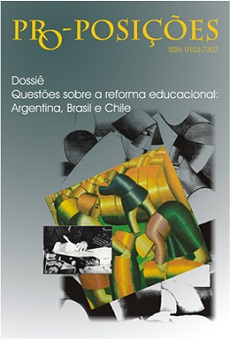Resumo
Este texto propõe-se a esclarecer a noção de transmissão, considerando-se que ela visa uma dinâmica constitutiva de toda civilização humana. Ele parte do paradoxo interno do transmitir: transmitir implica o transporte, a transferência de materiais, de patrimônios sociais de um lugar ou de um tempo para outro, com a preocupação de conservar sua identidade ou sua mensagem; e, ao mesmo tempo, transmitir é um ato que se inscreve na história, que “faz história”. Transmitir é uma “atividade humana”, que não pode eludir os debates próprios a toda atividade humana. Explicita-se essa idéia a partir da diferença entre um meio físico e um meio humano, entre leis e normas: procura-se estabelecer “leis” de transmissão no primeiro, enquanto que tudo num meio humano é “normatizado” (normé), ou seja, é o resultado de escolhas de vida anteriores, conscientes ou inconscientes. Disto resulta uma deontologia da transmissão nos meios humanos; ela concerne, em particular, muito diretamente ao trabalho e seu governo, bem como aos problemas do ensino, onde o projeto de transmitir é explícito.
Abstract:
The purpose of this text is to bring a certain enlightenment to the notion of transmission, considering that transmission is involved inside dynamics of every human civilization. It starts from the internal paradox of the “to transfer”. “To transfer” implies the transportation of materials, of social patrimonies from a place or from a time to another with the intention of protecting one’s identity or message. Nevertheless, at the same time, “to transfer” is an act, part of an history, it “makes history”. “To transfer” is a “human activity”, which cannot escape inner debates, like any other human activity. The idea is better clarified, when considering the difference between a physical and a human environments, between laws and norms: we are looking for “laws” of transmission in the first, while in a human environment, everything is submitted to “norms”, that is, it comes from former life choices, either conscious or unconscious. And from that results, in human environments, a special deontology of the transmission, which, for example, concerns directly our way to think human labour and its government ; as well as learning problems, in which the purpose of transmission is quite clear.
Key-words: Transmission. Laws. Norms. Human activity. Ergology. Use of oneself by oneself
Referências
CANGUILHEM, Georges, Essais sur le normal et le pathologique. P.U.F, 1966.
CANGUILHEM, Georges. La connaissance de la vie. Paris: Vrin, 1965.
DESCARTES, René. Principes de la philosophie, II. Paris: Édition Pleïade, NRF, 1958.
DURAFFOURG, Jacques; VUILLON, Bernard (orgs.). Alain Wisner et les tâches du present. Toulouse: Octarès Éditions, 2004.
DURRIVE, Louis. Le travail sur la scène. Refléxions sur la face cachée de l’alternance.Strasbourg: CRAPT-CARRLI, 1999.
LAFFITE, Jacques. Réflexions sur la science des machines. Paris: Vrin, 1972 (1932).
LEROI-GOURHAN, André. Mécanique vivante. Paris: Fayard, 1983.
MARX, Karl. Le Capital. Critique de l’economie politique.Livre I. Paris: Éditions Sociales, 1950.
MENCACCI, Nicole. Pour une intelligibilité des situations de confrontation à un preoblème dansl’ensseignement et la formation universitaire professionnalisée. 2003. Thèse (Doctorat), Université de Provence , França.
ODDONE, Ivar et al. Redécouvrir l’expérience ouvrière. Vers une autre psychologie du travail? Paris: Éditions Sociales, 1981.
ORBAN, Edouard. Service public! Individu, marché et intérêt public. Paris: Syllepse, 2004.
ROSA, Maria Inês. Usos de si e testemunhos de trabalhadores. Com estudo crítico da Sociologia industrial e da reestruturação produtiva. São Paulo: Letras & Letras, 2004.
SCHWARTZ, Yves. Le paradigme ergologique ou un métier de philosophe. Toulouse: Octarès éditions, 2000.
SCHWARTZ, Yves. Raison Pratique et débats de normes. In: BIENENSTOCK, Myriam; TOSEL, André (orgs.). La Raison Pratique au XXè siècle. Paris: L’Harmattan, 2004.
SÉRIS, Jean-Pierre. Machine et communication, du théatre des machines à la mécanique industrielle. Paris: Vrin, 1987.
A Proposições utiliza a licença do Creative Commons (CC), preservando assim, a integridade dos artigos em ambiente de acesso aberto.

